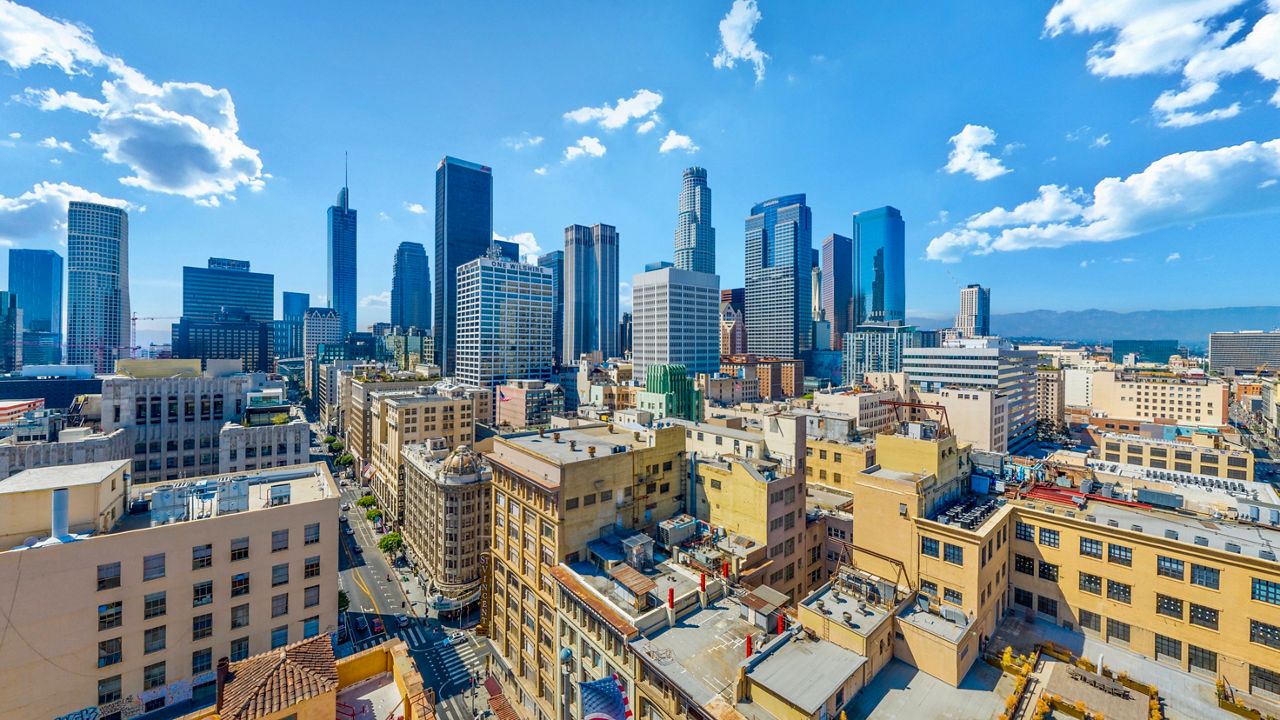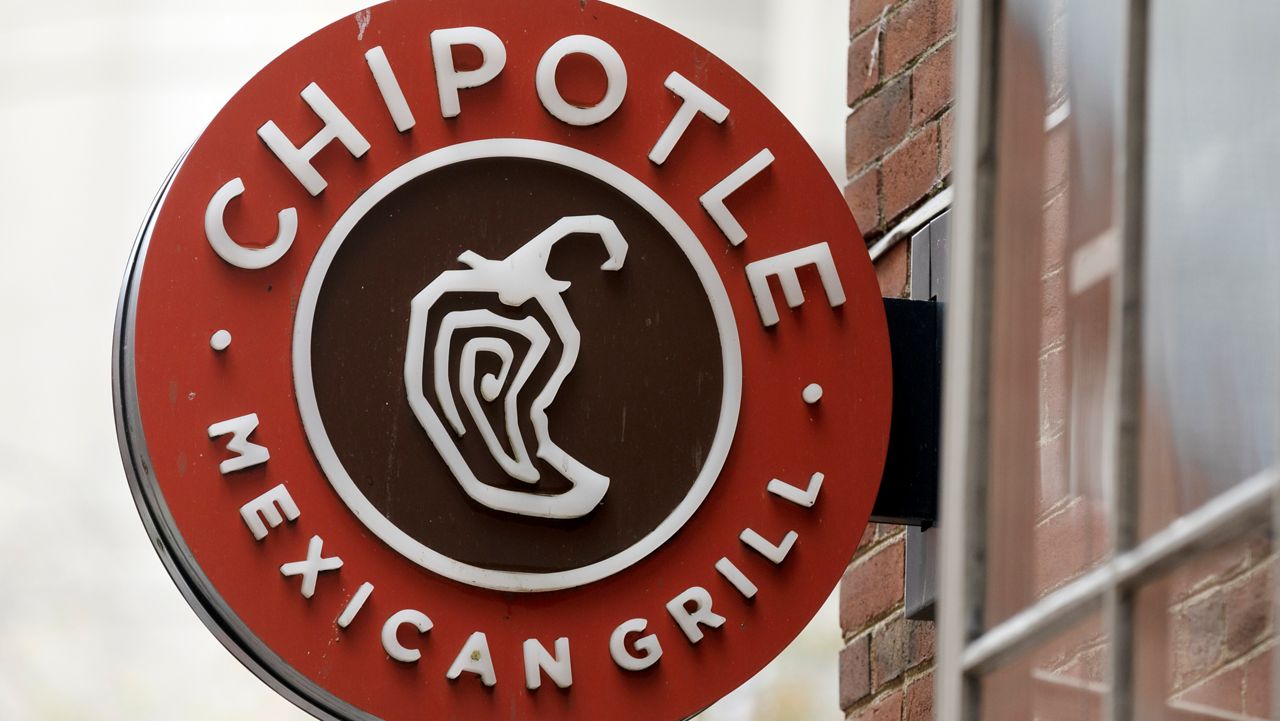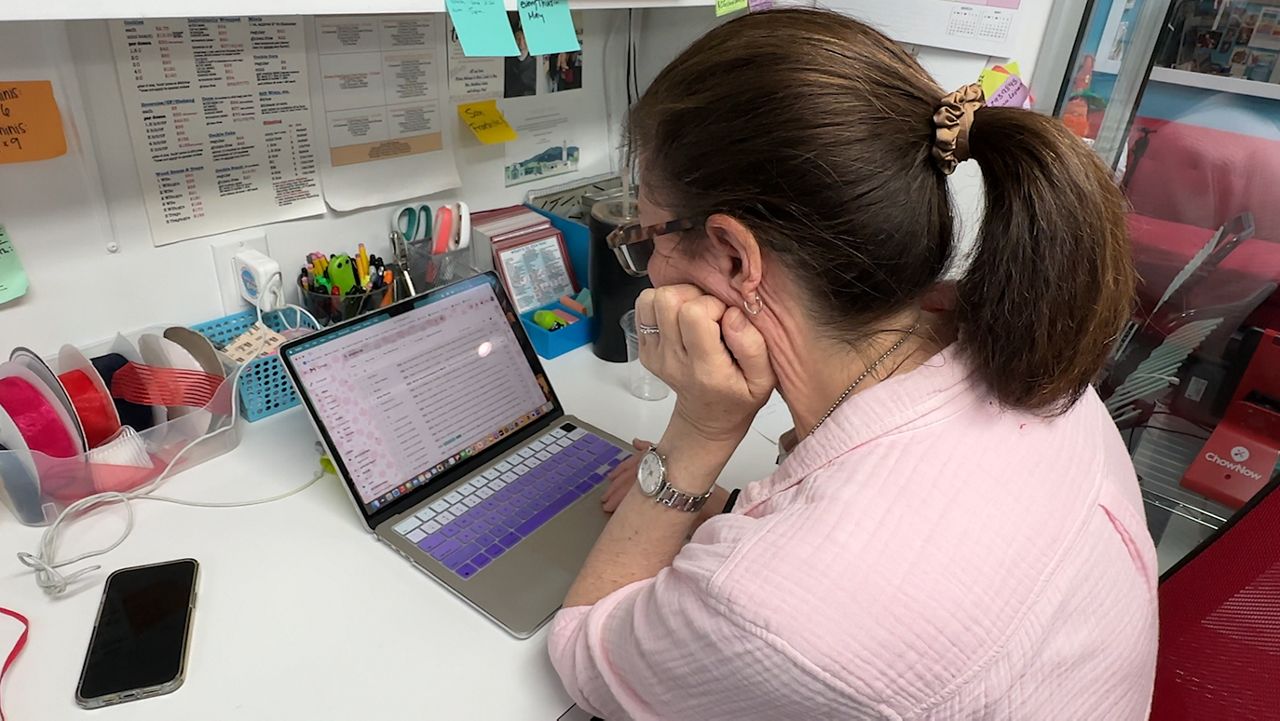LOS ANGELES — Chris Rising misses the days of a filled downtown Los Angeles.
Before the coronavirus pandemic, downtown LA would be bustling with energy on any given day.
People would stand in line at coffee shops. Others would be picking up or dropping off their dry cleaning. The neighborhood restaurant and bar would be filled with happy hour customers.
But for the past two years, people and employees fled the dense downtown area due to pandemic-related restrictions to help slow the spread of the nascent coronavirus. The high rises that tower over downtown Los Angeles were primarily vacant during the day, and streets were eerily empty.
"When you think of all of the places that are suffering — from the small salad place, the dry cleaners, to the donut shops — the pandemic has had a massive impact," said Rising, the CEO of Rising Realty Partners, which owns the CalEdison, 1 Cal Plaza and Trust Building, among others. "We need thriving communities."
As the coronavirus pandemic wanes and with vaccines widely available, downtown Los Angeles and other commercial business districts could be filled once again, although maybe not at the same levels as pre-pandemic. Commercial real estate experts said many businesses are crafting their return to office protocols.
President Joe Biden sent a strong message during the State of the Union urging remote workers to return to the office.
"It's time for Americans to get back to work and fill our great downtowns again," Biden said. "People working from home can feel safe to begin to return to the office."
Biden's message received intense backlash from workers on social media, many of whom have grown accustomed to working remotely or from home.
Major companies soon followed the president's lead, announcing plans for their workers to return to their home office.
Alphabet (Google), Apple, Microsoft, Meta and Morgan Stanley were among companies this week openly telling their employees to come back to the office.
So why is Biden urging Americans to come back to the office with the pandemic still going on and now gas prices rising?
Because it's for the economy's health, said Peter Belisle, the market director Southwest Region at JLL, a commercial real estate company.
"There is so much of the economy that supports these urban centers — retail, food and beverage, so getting these urban gateway city markets reactivated is good for America, the economy, and local businesses," Belisle said.
In the past 12 months, Belisle has visited central commercial business districts from Chicago, San Francisco, Seattle, San Diego to Los Angeles. It's hard not to ignore the empty streets and see the vacant storefronts.
"You see a lot of small businesses, unfortunately, go out of business," Belisle said. "They just didn't have the foot traffic. Those high rises were their customer base, and it went from 85% occupied to zero. Their business has been cut 60% to 85%. A lot of those smaller businesses weren't able to survive that."
Big office owners and landlords also stand to lose out. Many of these office buildings in major commercial business districts are owned by pension funds, insurance firms, retirement systems and other institutional investors.
According to reports, having empty offices could disrupt the entire commercial real estate stratosphere.
However, Los Angeles has been rebounding since pandemic-related restrictions emptied buildings and downtown streets.
According to access control company Kastle, which keeps track of the number of people that enter at 2,600 offices in their portfolio nationwide, in January 2020, office occupancy in downtown Los Angeles was at 99% before the pandemic hit.
It dropped as low as 18% when the omicron surge hit and coincided with the Christmas holiday this past December. But office occupancy downtown has slowly inched up.
Currently, office occupancy in the Los Angeles metro rose from 35% at the end of February to 37% in the first week of March.
Nick Griffin, the executive director at Downtown Center Business Improvement District, said when downtown commercial business districts thrive, the rest of the city thrives.
"Downtown LA is the economic center of Los Angeles," Griffin said to Spectrum News. "It's health and vibrancy is critical to the success of Los Angeles."
While some on social media have complained about returning to the office, Griffin said, that's only a small vocal minority.
One of the Downtown Center BID's surveys found that 93% of workers intend to return to the office.
"We don't know at what capacity, but we know they are going to come back eventually," said Griffin, adding that downtown LA tourism has gone up significantly in the past year.
"We're ready to welcome them all back," Griffin added.
Rising said his business has struggled during the pandemic. From March 2020 to March 2021, no prospective tenant or company toured any of his buildings.
"No one was looking for space," Rising said.
His tenants continued to pay rent. Currently, office occupancy in his portfolio is about 40%, he said. Like other companies, Rising has upgraded his office buildings' air filtration system and made other changes to lure workers back.
Rising said things are turning around. He's noticed that as coronavirus cases moved downward, there's been a push by some companies to either expand or look for new space.
There are a lot of tangible benefits working in an office. Rising said an office is more than just a place for a company to store their stuff or where their workers put their heads down to work.
An office is where people can collaborate and interact with their colleagues. It's a place to build a thriving company culture, said Rising. Rising recalls being a young attorney and learning and collaborating with senior partners.
"As a business owner with a team, it's much more effective for me to meet with my team in person and have those creative brainstorming sessions," he said.
Offices are a great place to collaborate and build teamwork, he added.
"Many of these businesses are mentor and apprenticeship businesses," he said. "I think as human beings, we'll be better off returning to the office. I think a company is only going to be as strong and thriving as their company. The only way to have culture is to have some in-person interaction."










